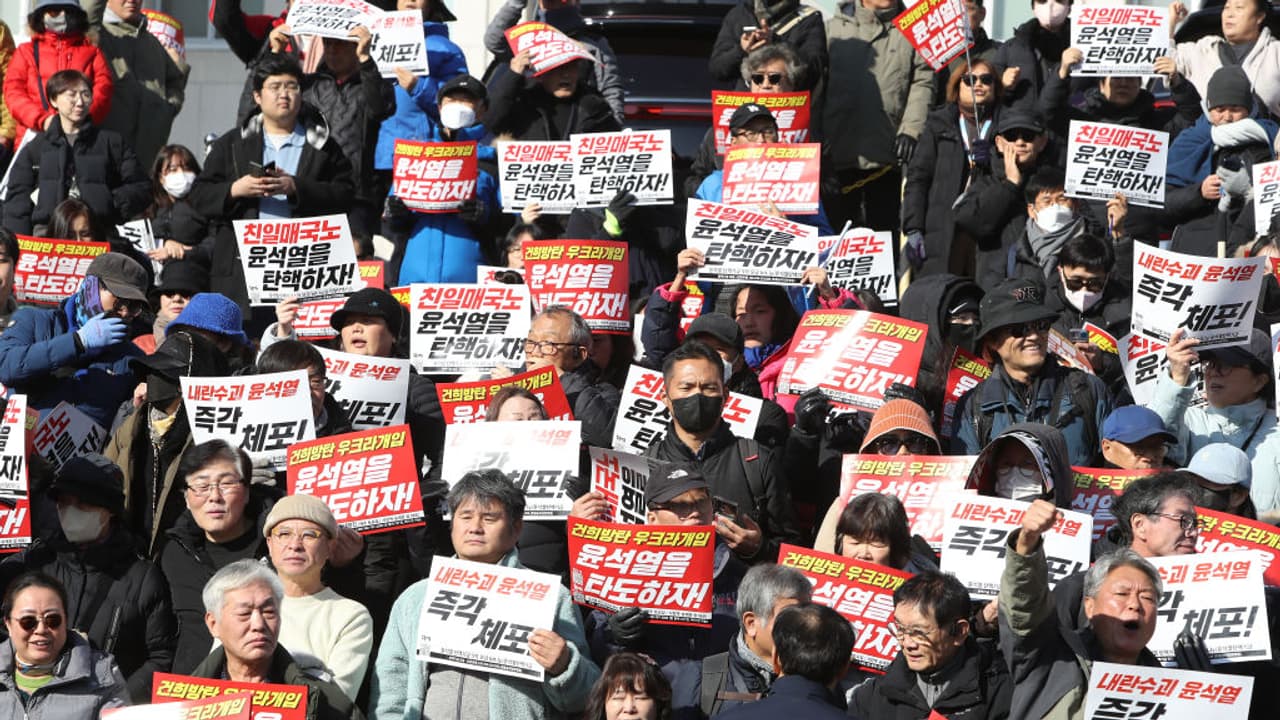South Korean opposition lawmakers have submitted a motion to impeach President Yoon Suk Yeol following his controversial and short-lived declaration of martial law late Tuesday night.
South Korean opposition lawmakers have submitted a motion to impeach President Yoon Suk Yeol following his controversial and short-lived declaration of martial law late Tuesday night. The motion, tabled on Wednesday, follows widespread criticism of Yoon’s decision, which many see as a grave overreach of presidential powers.

The motion for impeachment will trigger a procedural debate within the National Assembly, where the motion must be approved by at least two-thirds of the 300-member body—equating to at least 200 votes—within 72 hours of its proposal. Given the opposition’s current majority in the assembly, the motion could lead to an impeachment vote as soon as later this week.
The political fallout stems from Yoon’s decision to impose martial law, the first such declaration in South Korea in over four decades. During a late-night television address, Yoon cited the need to combat “anti-state forces” and threats from North Korea as the justification for the drastic move. However, critics argue that the president's decision was more about quelling domestic political opposition and consolidating power amid growing challenges to his leadership.
The declaration prompted swift action from parliament, with lawmakers voting to lift the martial law declaration within hours, reflecting the swift disapproval of Yoon’s actions. South Korea’s military, deployed to enforce the martial law, was seen blocking protesters and lawmakers from entering the National Assembly, further escalating the crisis.
In response, the opposition Democratic Party has called for Yoon’s immediate resignation, threatening to move forward with impeachment proceedings if their demands are not met. The impeachment motion will now be debated in the National Assembly, with Speaker Woo Won-sik set to open a session in the coming days.
Martial law, which temporarily places military authorities in charge of governance, was last invoked in South Korea in 1979, during the authoritarian rule of Park Chung-hee, before the country transitioned to a democracy in 1987. Yoon's recent declaration has sparked fears of a regression to authoritarian practices, reminiscent of South Korea’s military-backed past.
The motion has already sparked significant political debate, with some accusing Yoon of attempting to suppress political opposition, citing his recent struggles in pushing his agenda through a parliament dominated by the opposition. This follows a series of setbacks for Yoon’s administration, including poor approval ratings and corruption scandals that have plagued his presidency since taking office in 2022.
